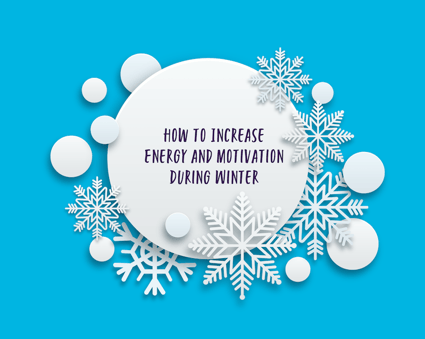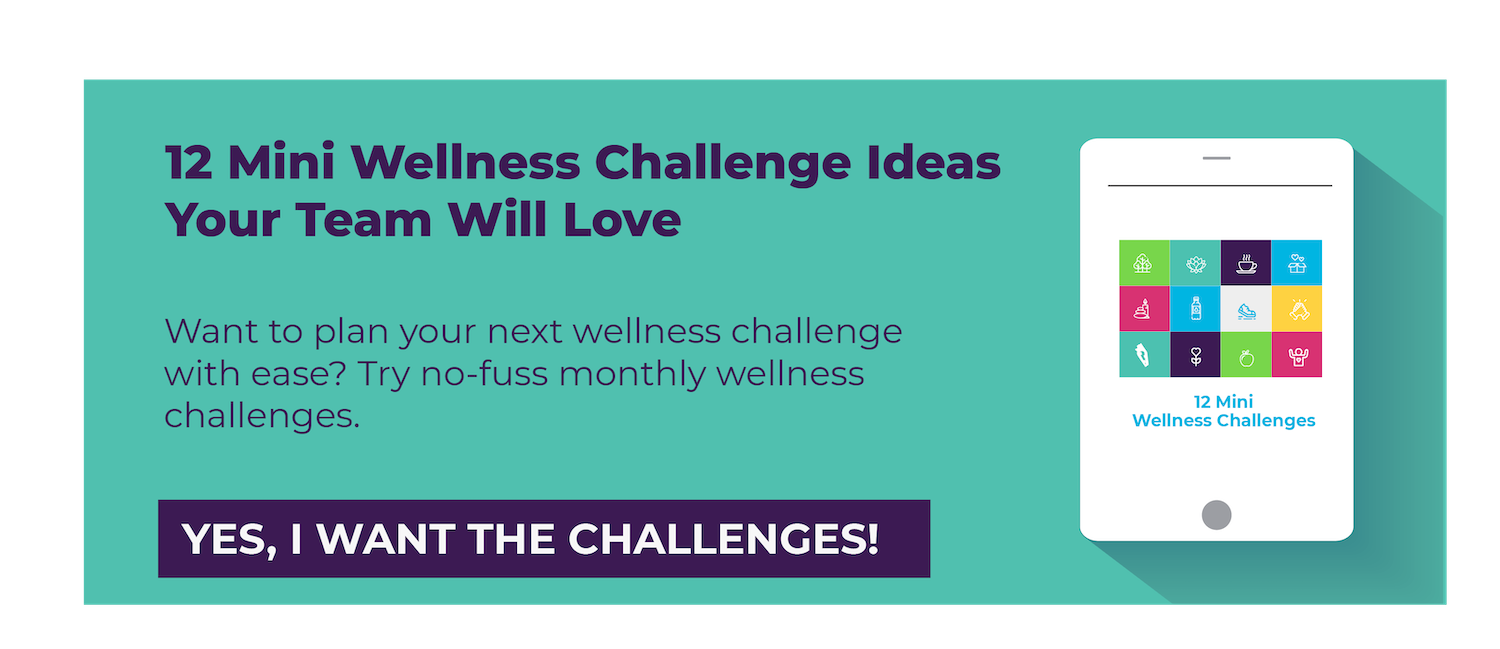 Struggling to naturally energize and motivate yourself during the winter months?
Struggling to naturally energize and motivate yourself during the winter months?
You aren’t the only one.
It’s scientifically proven that wintertime makes the body a lot less energetic.
Naturally, as the days shorten and grow colder, the colder weather disrupts the body’s sleep schedule. This can make it challenging to get out from under the covers in the morning and stay motivated throughout the day.
This post offers insights from experts like dieticians, psychotherapists, life coaches, and nutritionists. Below, find out what they have to say about how to increase energy and motivation throughout the darkest days of winter.
Expert Advice to Increase Your Energy and Motivation
Sometimes, we just need a little reminder of how to get our energy back — especially in the deepest parts of winter when it’s cold, dark, and just plain miserable. For some people, it’s getting back into a routine; other people may need more alone time that’s less structured to feel energized.
Whatever it is that brings you energy, you’ll find it also brings along with it a dose of motivation, too. Below, experts share ideas and actions they take and recommend for clients looking to beat the winter doldrums.
Soak Up Natural Vitamin D
“Going outside for a walk will help you reset your mind and keep you active during the day. Getting outside in the sunlight will also expose you to vitamin D, which is a must for your bones. An added, and often overlooked benefit, is that by drinking in the cool fresh air, not only will you energize your body, but you will also trigger your metabolism to bump up its calorie burning potential in an effort to keep you warm.”
— Joy Puleo, MA/NCPT, Balanced Body Education Director
Make a Plan
“It's easier to follow a plan you made for yourself when you're feeling less energized than to create the plan as you go. For example, plan out your meals for the week, your workouts, your study times, your reading time, etc. Throughout the week, simply follow your plan while allowing for some flexibility. This relieves your decision making part of your brain from having to be 'on' all day everyday. This will save you energy and time!”
— Katrina Paraskevopoulos, Founder & CEO of Kat Health Fitness, Eyia Wellness
Awake Naturally
“Allow natural light to enter your bedroom before you wake up to help your body awaken more easily. If you get up before sunrise, don’t have a window or your bedroom, or need to close your blinds due to light pollution, using a sunrise alarm clock can do the trick.
Getting 15 minutes of outside light exposure first thing in the morning helps to regulate your circadian rhythm (sleep-wake cycle) and keeps your body and mind energized during the day. Unfortunately, indoor lights and sunlight filtered through the window don't work as well. You could try going for a walk, looking out an open window, or drinking your coffee on the porch. If all else fails, you can purchase a light box to help out.”
— Kaytee Hadley, functional medicine dietitian and founder of
Holistic Health and Wellness
Give Prebiotic Fibers a Try
“I highly recommend people incorporate gut-healthy prebiotic fibers into their diet. Prebiotics are the fuel for the beneficial bacteria in your gut, and it is known that our gut and brain are directly connected and have a great impact on each other.
With 90% of our mood-elevating serotonin being found within our gut, as well as poor gut health is linked to inflammation that is connected to anxiety and depression, it makes sense that improving gut health can support an improved mood.
Some simple ways to include prebiotic fibers into your diet can include consuming cooked — and then cooled — potatoes and grains, adding legumes to winter dishes such as lupin beans, or even simply adding a scoop of prebiotic fiber powder to a warm bowl of oatmeal or pancakes.”
— Kara Landau, gut health expert, registered dietitian and founder at Uplift Food
Tackle Exercise Early
“Get up and at ‘em. Research has suggested that exercising early in the morning can help to increase energy levels throughout the day. If you find yourself scrambling to put it all together in the morning, consider setting out your exercise clothes the evening prior so that you are more apt to squeeze them in. Regular exercise also promotes more restful nighttime sleep so that you feel more energetic during the day — a win-win.”
— Mary Wirtz, registered dietitian and consultant for Mom Loves Best
Get Out in Nature
“Let the beauty of nature feed your soul. Walking has been shown to be valuable in improving mental health, particularly depression, so it is important to try and walk daily. When you do go for a walk, set your focus on just the experience of walking and your surroundings. For example: your feet on the ground, the fresh air, sunshine, birds singing, etc. Be mindful, embrace each step and you will be sure to feel rejuvenated afterwards!”
— Dana Humphrey, life coach at Dana Humphrey.com
Try an Opposite Action
“This skill is a must when trying to fight against a more entrenched negative mood. The idea is to do the opposite of whatever your current low mood is telling you to do.
If your mood is saying, “Don’t get out of bed, just sleep and avoid the day,” then your opposite action says, “Forget that! Put your feet on the floor, and get moving one step at a time.” Then you can try to find small steps to get out of bed and see if that can help motivate you to do tasks at home or even sit outside.
The more we submit to our negative mood and allow it to dictate what we do, the lonelier, sadder, and more anxious we become.
So if you are feeling lonely, you could try texting a friend; that might encourage you to make social plans instead of hanging out on your own. If you are feeling anxious, instead of avoiding what is making you feel that way, you could make a short list of smaller steps that can help you accomplish the bigger task at hand.
Completing these smaller steps is all part of the opposite action. Once we fight that negative mood and find a way to get moving — even a little at a time — we usually start to feel better.”
— Angela Ficken, psychotherapist and founder of Progress Wellness, LLC
Make “You Time” a Priority
“Make yourself a priority each day to do something that fills you up. That will look different for everybody, but it could be reading in the morning before kids wake up, going for a walk after school drop-off, using time on your lunch break to meditate. I know everyone doesn’t have a lot of time, but carve out longer periods when you can.”
— Lauren Ferrara, VFit Studio fitness instructor and registered dietitian
Stay Regular
“Stay away from all of the traditional comfort foods like pie or candy that might make you feel good at the moment but will inevitably make it hard for you to get motivated later. I also wanted to point out that I feel more energized during the winter when I'm regular. So focus on getting plenty of fresh fruits and vegetables in your diet as constipation and irregularity will quite literally make you feel heavier, weighted down, and bloated, thus, less energetic. Keep moving, stay hydrated, and stay regular!”
— Heather Hanks, nutritionist and medical advisor at Medical Solutions BCN
Try Light Therapy
“As the days get colder and shorter, many of us have a hard time getting up and motivated in the mornings. The lack of sunlight wreaks havoc on our circadian rhythm, causing changes in sleep patterns, making you feel more tired or even depressed. Seasonal Affective Disorder (SAD) is a real condition caused by changes in weather and lack of sunlight. If moving south for the winter is not an option, there are easy ways to increase energy, improve focus, motivation, function, and well-being. One way to do this: Get a light therapy lamp to provide beneficial light to help improve moods.”
— Brittany DeVall Heyden, Functional Medicine Health Consultant at
Renovaré Consulting, LLC
Drink Lots of Water
“Drinking water throughout the day can prevent fatigue from setting in. Many studies show that fluid loss of just 1-3% impairs focus, mental sharpness, energy and mood. If you don’t like water on its own, add a slice of lemon or lime. Alternatively, and perhaps more appropriately in winter, hot herbal tea can perform the dual function of keeping you warm and hydrated. Water is also a great replacement for high-sugar sodas which can cause a sugar crash, leading to feelings of depletion.”
— Julie Mancuso, owner of JM Nutrition
Eat Breakfast
“Start the day with a healthy breakfast. When you eat a carbohydrate-rich breakfast, your body releases insulin and stimulates your brain to release serotonin, the feel-good neurotransmitter that helps counter feelings of depression. A healthy breakfast also gives you energy to face the day.”
— Janet Coleman, registered dietician at The Consumer Mag
Naturally Boost Your Own Energy for Best Results
Skip the lethargy this winter by staying on top of ways to increase your energy.
Sure, an energy drink or coffee will spike your levels for a bit, but you’ll end up crashing hard. Try the above options on a regular basis and learn which techniques help you best sustain your energy.
Want even more boosters?
Check out our free downloadable, 52 Energy Boosters for Every Week of the Year!
As winter wears on, keep trying different options and see what sticks. What may work for one person may not work for you. Trial and error is how you’ll figure out your favorite energizers and motivators.
Until then, use this list to keep you from hitting snooze and crawling under the covers again and again.



